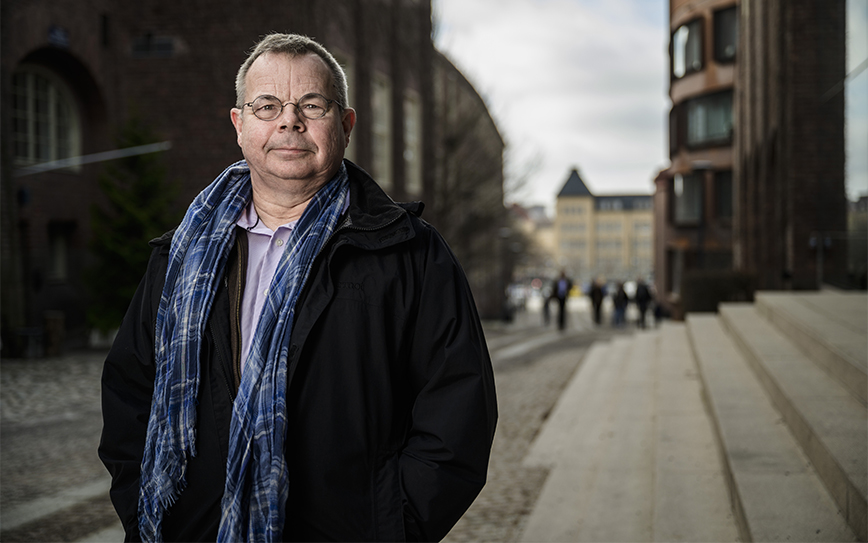New Vice President for Sustainable Development

Per Lundqvist, Professor in Energy Technology, will be KTH Vice President for Sustainable Development from the first of April.
“It feels great. I am by no means unfamiliar with these issues, having worked with them in various roles over the last 20 years. For me, it is about finding what is good for KTH and what contributions KTH can make.”
How should KTH drive forward work with sustainable development?
“It is about making sure that all research, and here KTH is like a tropical rain forest with tremendous biodiversity, should aim to deliver benefits and not stay stuck in the laboratory and that our researchers should be given opportunities to do this. Although certain sustainability research is easy to define, KTH has an enormous potential within other areas where the connection is perhaps not as clear from the beginning such as within the materials area. Sustainability issues are complex and numerous interdisciplinary research partnerships are therefore another important way forward.
“Another absolutely crucial part where we know that we have a big impact is our students whom we are educating to deal with these challenges in the future and to work with sustainability driven questions in a modern way, something that also makes our study programmes even more attractive globally.”
Amongst his very many achievements, Lundqvist has been something of an educational pioneer who has developed study programmes at KTH in a variety of different ways. He has also worked with KTH Live-in-Lab where different energy solutions are tested in practice in a student hall of residence, and from 2000 - 2006 he was a member of the UN climate panel that looked at freons and their impact on the hole in the ozone layer and global warming.
What do you hope to achieve in your new role?
“Apart from what I have already mentioned, it is about taking further steps to develop KTH’s sustainability profile. Can we turn an entire campus into a Live-in-Lab for sustainable solutions is one idea I have been playing with.”
In February, KTH announced new sustainable development and climate goals, that state that KTH should be sustainable, equal and climate neutral. How do you view these?
“I’m very much in favour. I have glanced at them, but have not yet looked at them in any great detail. It is only together with the schools and the rest of our organisation that they can become reality. It is incredibly important that these issues can grow and are driven from the bottom-up linked to our researchers, teachers and students and made concrete.”
What role do you envisage for KTH as a leading university of technology in the climate reset?
“KTH has a key role as one of the leading universities of technology in Europe and an active role in many networks not least in issues of integration of sustainability in education. We are also strong in research in many areas that are central to climate and sustainability. It is therefore important to continue the fine work that has been done and further strengthen KTH´'s role as a leading university.
Jill Klackenberg
